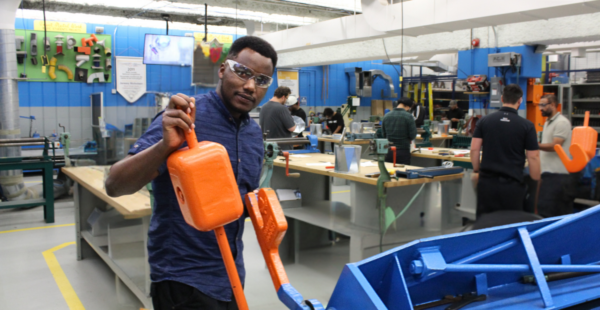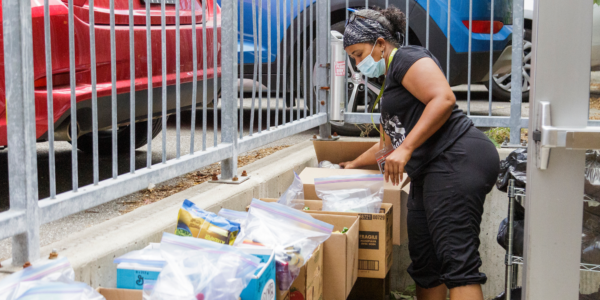Caring for a loved one isn’t easy. Sometimes you need help; professional help from a Personal Support Worker (PSW).
But how do you, as a caregiver, find one for your care recipient, and how will they be able to help?
We asked our WoodGreen experts to break it down for us.
What exactly is a PSW?
Personal Support Workers are trained care professionals.
They help people with daily tasks that they would normally be able to do themselves but physically cannot.
That means they help with anything from bathing, dressing and toileting assistance, to accompaniment on outings or light housekeeping and meal preparation.
⇒Navigating Ontario’s Health Care System: A Video Guide for Caregivers
Where can I find a PSW?
There are two main options for finding a Personal Support Worker:
- Home and Community Care Support Services (HCCSS)
This is free, government OHIP-funded and based on individual needs.
- Paid Services
— Community Support Services Agency
— Private PSW Agency
— Private PSW (hired directly)
[embed]https://www.youtube.com/watch?v=dCfdWMomyzw[/embed]
Where should I start?
The first call is usually to determine if your care recipientis eligible for OHIP-covered PSW support. In East Toronto, call the Toronto Central Home and Community Care Support Services at 416-506-9888.
TIP: Make sure your care recipient is with you to give consent to discuss their support needs.
Who gets an OHIP-funded PSW?
HCCSS bases eligibility on the individual’s level of need for support.
Its PSWs are generally assigned to people with high needs and care is limited only to the personal tasks that a person can’t do themselves. It doesn’t include housekeeping.
There is usually a phone screening and then an in-home assessment for the care recipient.
How much government-funded help can I get?
It varies based on need.
People with low-medium receive between one and six PSW hours per week for things like showering/bathing.
Someone with medium-high needs might get seven to 14 PSW hours. These individuals are usually incontinent and need help with all of their daily activities.
People with the highest level of need, for example someone who lives alone, has no caregiver and who is bed bound, can qualify for 15-28 hours a week.
What if the free PSW hours aren’t enough?
There are three types of paid PSW services available:
- Non-profit Community Support Services Agencies.
These organizations, such as WoodGreen, use government subsidies and private donations to help offset the cost of PSW care for clients. This is the most affordable private option, but is in incredibly high demand. - Private PSW agencies.
These charge higher fees but offer more services, including housekeeping, laundry and excursions. - Private PSW or undesignated “care providers”.
You need to seek out, interview and hire the person. However, you negotiate the rate and the tasks, which can be a more affordable option than a private PSW agency.
How much does it cost?
- HCCSS-approved PSW hours are covered by OHIP, so they are free of charge.
- Non-profit agencies subsidize their rates and therefore charge between $18 and $28 per hour.
- Private PSW agencies charge between $30 and $45 per hour and usually have a three hour minimum for service.
- A private PSW or caregiver sets their own rates and terms of employment and would negotiate this with you directly.
➡️To learn more about the services and help available for care givers, please see our Caregiver Navigation Guide.
➡️ Learn the terms and expressions to help understand the language around caregiver services in Ontario with our handy glossary.





